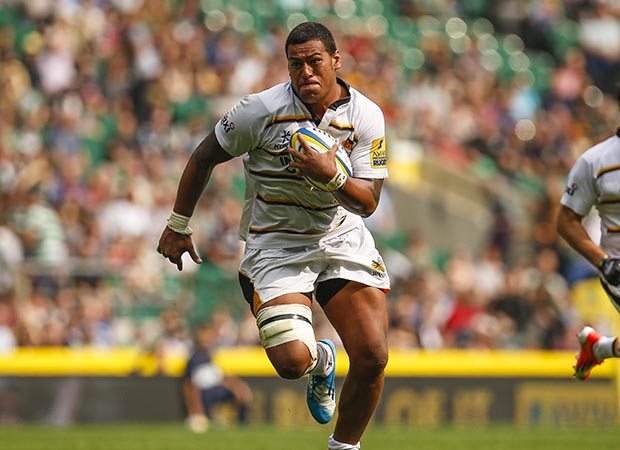

However, despite having become one of the most-sought after ball-carriers in the game almost overnight, Hughes revealed this week that rather than making rampaging runs for Fiji against England five months from now in the 2015 World Cup he’ll be putting his feet up and watching the biggest rugby show on earth from his armchair in Richmond.
Hughes said: “I’m going to watch the World Cup and support teams…Fiji, obviously, because I’m from there. I’ll probably try and go to the opening game, Fiji versus England – that’ll be a good game. I’ve sat down and thought about playing international rugby, and at this stage I haven’t decided yet.”
He added, however, that having declined an invitation to play for Fiji from their Kiwi coach, John McKee, during the last Autumn series, the die was cast. “He emailed me before the November tour and asked me if I wanted to go. I said at this time I’m not ready, I am just seeing how we go with Wasps and getting more experience. That was the end of the conversation really.”
Hughes explained: “With Fiji I have to make a decision now, to play World Cup. Like I said, I’m not ready yet.
“There’s still a lot to learn. The more games I play here for Wasps week in week out the better, and getting that exposure playing against great players will just build my confidence to play international rugby.”
Hughes, whose wife Ella is expecting to give birth to the first child over the next three weeks, elaborated: “With a new-born coming up, that’s my main focus. I’m just focussing on Wasps at the moment, trying to cement that top six Premiership spot. Our goal is to play European rugby next year as well. I always say wait until the time is right, and I’ll make the decision. Right now, the time’s not right.”
Hughes is in a tiny minority of rugby people who take that view, and the rest of them are to be found among the England coaching hierarchy, including forwards coach Graham Rowntree who said earlier this season, “I like the look of that Hughes”.
He made that observation knowing that barely a year from now (June 2016), Hughes, who joined Wasps two years ago from Auckland, will qualify for England.
The Wasps No.8’s decision to remain on the sidelines at the age of 24, at a time and stage in his career when most players would move heaven and earth to play in a World Cup, highlights a dilemma which goes to the heart of a problem which has the potential to put a choke-hold on international rugby’s global spread.
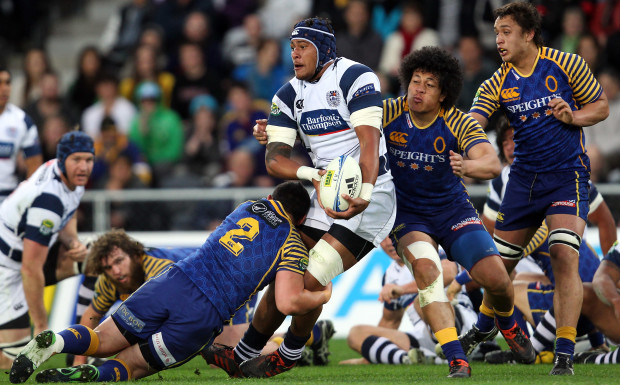
No-one should blame professional players like Hughes for looking after their financial futures. They are engaged in a tough trade in which, if they are unlucky, careers can be cut short brutally by injury. Instead, World Rugby should be blamed for fostering a situation in which Australia, New Zealand, France and England are leading the way in plundering the Pacific Islands of their most talented players.
An income equalisation scheme, by which World Rugby used some of the millions they earn from the World Cup to top-up the international earnings of elite Fijian, Samoan and Tongan players to near parity with that of the poacher-nations, would offer a solution to players like Hughes voting for their bank balance rather than their heritage. So would a seven-year residency qualification from a first senior club contract, which could not be given before the age of 20.
Until that nettle is grasped by World Rugby, the Pacific Island nations do not stand a prayer of hanging on to players like Hughes and breaking out of their Tier Two compound.
What makes Hughes such hot property is that even allowing for the considerable claims of Billy Vunipola, Ben Morgan and Thomas Waldrom, he is the most exciting No.8 in the Premiership, and possibly Europe. The Wasps backrower’s ability to break tackles and make skilful offloads is priceless, and where he does not have Vunipola’s heft and power, at 6ft 4ins and 17st 7lbs he is a more explosive, athletic carrier than either the Saracens heavyweight or the evergreen Waldrom. On top of that, his clattering defence and work-rate is of a much higher order than Morgan’s.
However, with only a week to go before a season-defining 32,000 sell-out against Leicester at the Ricoh, Hughes is searingly honest about being a complete know-nothing on English rugby before he joined Wasps.
“I didn’t know anything about Wasps…not about them and Leicester Tigers, or the history (behind the two teams). When my agent said they are interested in you, I actually googled Wasps. When I first got here I was interviewed and was asked about Lawrence Dallaglio (left) and I said I didn’t know him. If he wasn’t an All Black, I wouldn’t. The only English player I knew – because he won the World Cup – was Jonny Wilkinson with that famous drop-goal.”
He says that since then he’s mugged-up on the subject: “I’ve read about Lawrence, including his book. It’s big history. Playing No.8 for Wasps, it’s big shoes to fill with the likes of Lawrence Dallaglio and Billy Vunipola there before me.”
Hughes says his lack of Rugby Union knowledge stems from coming to the game late. Apart from the informal touch or Sevens he played in the park while growing up in Lautoka, Fiji’s second port and capital of the sugar cane industry, he didn’t start playing schools rugby until he was 16.
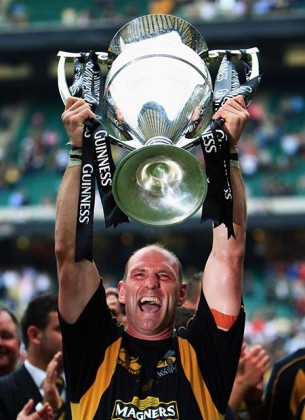
He says that his sporting pathway changed following a visit to Fiji by Kelston Boys’ High, the Auckland school where the 2011 World Cup-winning All Black coach Graham Henry was once principal, and which is renowned as one of the best Rugby Union nurseries in New Zealand.
Hughes recalls: “Our coach asked me if I fancied playing. I played lock and I can still remember what he said to me before the game: ‘If you’ve got the ball just run straight, if you see someone with the ball just try to tackle them.’ I was running around the field like a chicken without a head. I think their full-back ran down the sideline, and I chased him and actually tackled him into touch. People were watching on the sideline sat in school chairs, and we actually broke one. So, that surprised a few.”
“After the game I got a scholarship to go over to NZ… but I was new to the game and coming from a hockey background I thought I wouldn’t go far with it. Then, when I decided to fill in the scholarship, it all started from there.”
He says that support from his parents was unconditional: “My Dad’s a mechanic, and used to work for the Fiji Electricity Authority. When the opportunity came for me to go to play rugby in New Zealand they said it’s up to you, if you want to further your career then we will be 100 per cent backing you. A year later they moved to NZ to come and stay over.”
From Kelston he secured a contract with the Auckland Academy, and from there progressed rapidly to the Auckland ITM Cup side under the coaching first of Mark Anscombe, and then his second season with Wayne Pivac.
Hughes says: “That year I decided I’d target a Blues contract to play Super Rugby, but when they named the squad and I didn’t get in I went back to the drawing board. John Kirwan was the Blues coach at the time. I talked to the agents and said I wanted to get more experience, and get exposed a bit more. Then Wasps came up, and I decided to take the opportunity.”
Which brings us back to the job in hand, and the rendezvous at the Ricoh with Leicester that will almost certainly dictate which side makes the Premiership play-offs.
“Training has been going well and I am really looking forward to it. Reading the history between the two sides…when they play each other it is just toe-to-toe for 80 minutes.
“Leicester have got a good side and are the team that have won the Premiership most, and now we’ve moved up to Coventry it makes it even sweeter – it is a local derby now. The Ricoh is sold out and I am looking forward to playing in front of 32,000 people. You don’t get that every week.”
The same is true of the box-office talent that Hughes possesses, and that’s why, by paying the biggest bounty, England are odds-on favourites to outbid Fiji for rugby’s most wanted man.


Miscellaneous
The Best Rugby Themed Games
Features
OSCAR WILSON




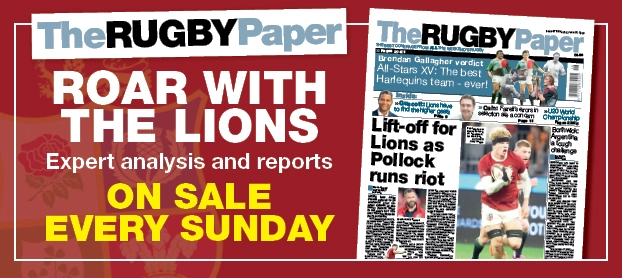













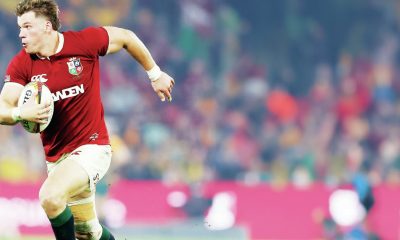

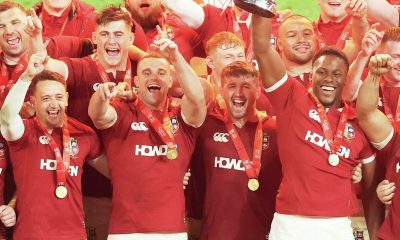







You must be logged in to post a comment Login